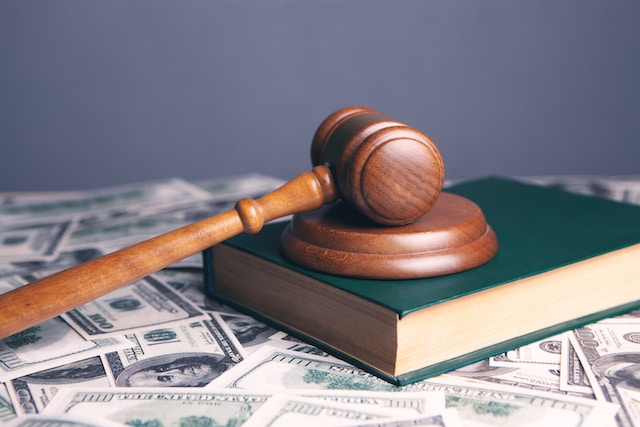In today’s digital age, journalism plays a crucial role in shaping public opinion and providing a voice to the masses. The freedom of the press is a fundamental right that allows journalists to report the truth without fear of censorship or retribution. However, this freedom is not absolute and is subject to legal frameworks and regulations that aim to balance the rights of journalists with other societal interests. In this article, we will explore the legal perspective surrounding journalism and freedom of the press, highlighting key principles, landmark cases, and the challenges faced by journalists in exercising their rights.
First Amendment of the United States Constitution
One of the fundamental principles underlying freedom of the press is the First Amendment of the United States Constitution, which protects the rights of journalists to report news and express their opinions without government interference. This constitutional protection extends to a wide range of media, including print, broadcast, and digital platforms. However, the First Amendment is not without limitations. For instance, it does not shield journalists from liability for defamation, invasion of privacy, or incitement to violence. Additionally, there are laws in place to protect national security, prevent the disclosure of certain confidential information, and safeguard the integrity of the judicial process.
Defamation and Journalism
Defamation is a legal concept that arises when a false statement harms the reputation of an individual or an organization. Journalists must exercise caution when reporting on matters that could potentially defame someone, as they can be held legally responsible for any harm caused. To establish a defamation claim, the plaintiff must prove that the statement was false, published to a third party, and resulted in reputational harm. However, the burden of proof may vary depending on whether the plaintiff is a public figure or a private individual.
Protection of Sources
Another legal consideration for journalists is the protection of sources. Confidentiality is often crucial for journalists to uncover and report on sensitive information. To encourage the free flow of information, many states have shield laws that provide varying degrees of protection to journalists and their sources. However, the extent of these protections can vary, and journalists may still be compelled to reveal their sources in certain circumstances, such as when there is a compelling public interest or national security concerns.
Digital Journalism and Legal Considerations
In recent years, the digital landscape has posed new challenges to the legal framework surrounding journalism and freedom of the press. The rise of social media platforms and citizen journalism has blurred the lines between professional journalists and ordinary individuals reporting news. While this has democratized access to information, it has also given rise to issues such as fake news, misinformation, and the spread of hate speech. Legislators and courts are grappling with these challenges, seeking to strike a balance between protecting the rights of journalists and addressing the potential harms arising from unverified or malicious content.
Landmark Legal Cases
Landmark legal cases have played a significant role in shaping the legal landscape surrounding journalism and freedom of the press. For example, the 1964 case New York Times Co. v. Sullivan established the “actual malice” standard for defamation claims involving public officials. This standard requires plaintiffs to prove that the defendant acted with knowledge of falsity or reckless disregard for the truth. Similarly, the 1971 case New York Times Co. v. United States, also known as the Pentagon Papers case, reaffirmed the importance of the First Amendment in protecting the freedom of the press, even in cases involving classified government documents.
Aspiring Journalists and Legal Considerations
Aspiring journalists should be aware of the legal implications and considerations surrounding their profession. Understanding the legal framework can help journalists navigate potential pitfalls and ensure responsible reporting. While freedom of the press is a cornerstone of democracy, it is essential to strike a balance between journalistic freedoms and the rights and interests of individuals and society as a whole.
The Legal Perspective on Journalism and Freedom of the Press
Journalism and freedom of the press are closely intertwined with the legal framework in which they operate. The First Amendment provides a strong foundation for protecting the rights of journalists, but it is not without limitations. Legal considerations such as defamation, source protection, and national security shape the boundaries within which journalists must operate.
Key Takeaways:
- Journalism and the freedom of the press are essential in today’s digital age for shaping public opinion and providing a voice to the masses.
- The First Amendment of the United States Constitution protects journalists’ rights to report news and express opinions, but it has limitations and is subject to legal regulations.
- Defamation laws hold journalists accountable for false statements that harm individuals or organizations’ reputations.
- Source protection is crucial for journalists, although they may be compelled to reveal sources under certain circumstances.
- The digital landscape presents new challenges, such as fake news and hate speech, requiring legislators and courts to find a balance between freedom of the press and addressing potential harms.
- Landmark cases like New York Times Co. v. Sullivan and New York Times Co. v. United States have shaped the legal landscape surrounding journalism and press freedom.
- Aspiring journalists should be aware of the legal implications and considerations in their profession to ensure responsible and ethical reporting.
Considering the complexities of the legal perspective on journalism and freedom of the press, it is crucial for aspiring journalists to stay informed and educated. To gain a deeper understanding of the legal aspects of journalism, one valuable resource is the “NYU | Modern Journalism” online course and certificate program offered by Yellowbrick.
This comprehensive program provides insights into the legal framework, ethical considerations, and practical skills necessary for a successful career in journalism. By enrolling in this course, aspiring journalists can enhance their knowledge and equip themselves with the tools needed to navigate the legal landscape while upholding the principles of responsible reporting.








